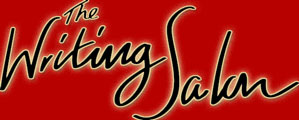 Just advertised at The Writing Salon, a call for San Francisco writers to head to Berkeley this weekend to learn to ” Write Fast, Write Furious: Optimize Your Writing Time and Output.” Courtesy of Jason S. Ridler, the all-day course runs on Sat. July 27, and offers writers the chance to: “get more words on the page … cut down your outlining, writing, and revising time.”
Just advertised at The Writing Salon, a call for San Francisco writers to head to Berkeley this weekend to learn to ” Write Fast, Write Furious: Optimize Your Writing Time and Output.” Courtesy of Jason S. Ridler, the all-day course runs on Sat. July 27, and offers writers the chance to: “get more words on the page … cut down your outlining, writing, and revising time.”
 This makes me wonder: Is this something a writer would want to do? I’m hardly a convincing argument for the merits of slow writing myself, as I regularly churn out four articles per day for TeleRead, plus a slew of other writing assignments and creative projects. All the same, my choices in writing process and equipment have been consistently governed by the wish to slow myself down, and use procedures that compel me to rein in my native fluency, spend more time on the words going into each sentence, and generally take a less headlong approach to what I’m doing.
This makes me wonder: Is this something a writer would want to do? I’m hardly a convincing argument for the merits of slow writing myself, as I regularly churn out four articles per day for TeleRead, plus a slew of other writing assignments and creative projects. All the same, my choices in writing process and equipment have been consistently governed by the wish to slow myself down, and use procedures that compel me to rein in my native fluency, spend more time on the words going into each sentence, and generally take a less headlong approach to what I’m doing.
This is not to dispute the merits of the course itself, especially for professional wordsmiths (journalists, copywriters, etc.). At $110 tops for the day, it’s hardly the highest-priced professional development crammer ever. And although some may pooh-pooh the value of lessons “from history, the psychology of creativity, and even scientific and business practices,” I’m sure they do have their value if taken the right way. Practically the one maxim shared by every writing course of whatever style or school is that you just have to keep writing. And anything that helps “reduce resistance in each stage” is probably going to be useful.
No, it probably comes down to the difference between productivity and creativity. Arguably, a copywriter needs productivity far more than creativity, and perhaps the same even applies to certain areas of formula genre fiction. And for writing disciplines that require research and coordination of material, which probably covers many more than some practitioners would like to admit, there are surely helpful techniques that can marshal facts and speed analysis. But all those are subsidiary to how you proceed and where you are going.
You can be an Anthony Trollope and grind out prose to a schedule, reaping readers’ acclamation and critics’ scorn. Or you can be an Alain-Fournier, and produce one single work that will be the stuff of legend. There is no clear way to determine which way you will go. And perhaps productivity is just a lot easier to teach than creativity.
































